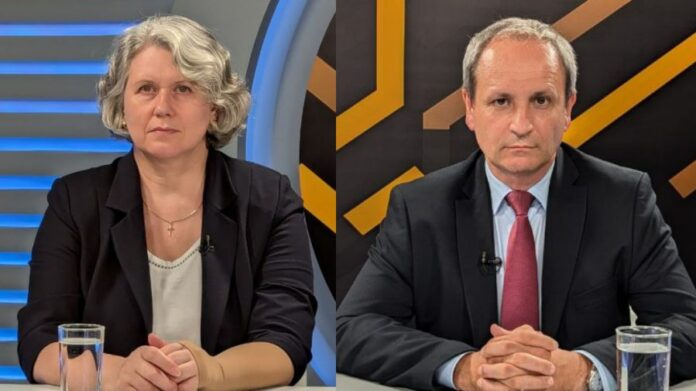The state needs to change its attitude towards research to avoid embarrassing situations when a Moldovan professor receives a salary ten times lower than a colleague in Europe. Aurelia Hanganu, director general of the National Agency for Research and Development, and Viorel Bostan, rector of the Technical University of Moldova, were guests of the program “Consens National” on RLIVE TV.
They explained that some national rules, which set limits on the salary of researchers, often dictate the situation faced by Moldovan scientists. Today, the average gross salary in scientific activities slightly exceeds 13 170 lei, and a beginner receives about eight thousand lei.
“A good builder can earn twice as much as an academic. However, reaching this position requires far more effort than a skilled craftsman invests in construction or cooking. Becoming a researcher means graduating from high school, getting a bachelor’s degree, a master’s degree, a doctorate, publications, and ideas. Only after that does the academic career start. It means investing time and effort and making sacrifices so that your salary matches the average in the economy. I find it a very thankless situation”, said Viorel Bostan, Rector of UTM.
FOR THE MOST IMPORTANT NEWS, FOLLOW US ON TWITTER!
Aurelia Hanganu, the director-general of the National Agency for Research and Development, emphasized that public money and European research programs fund research in the Republic of Moldova.
“European policy assumes at least three percent of the Gross Domestic Product for research. We are at the level of 0.28 of GDP. Research cannot exist without adequate funding. European programs offer us generous funding, but there is fierce competition. We have well-trained teams but poor infrastructure. However, we are not weaker, but rather timid regarding research excellence,” said Aurelia Hanganu.
At the end of last year, 3526 people were employed in R&D, almost ten percent less than in 2022. A third of researchers are over 64 years old, and the number younger than 34 is about 12 percent. Only one percent of researchers are under the age of 25.


